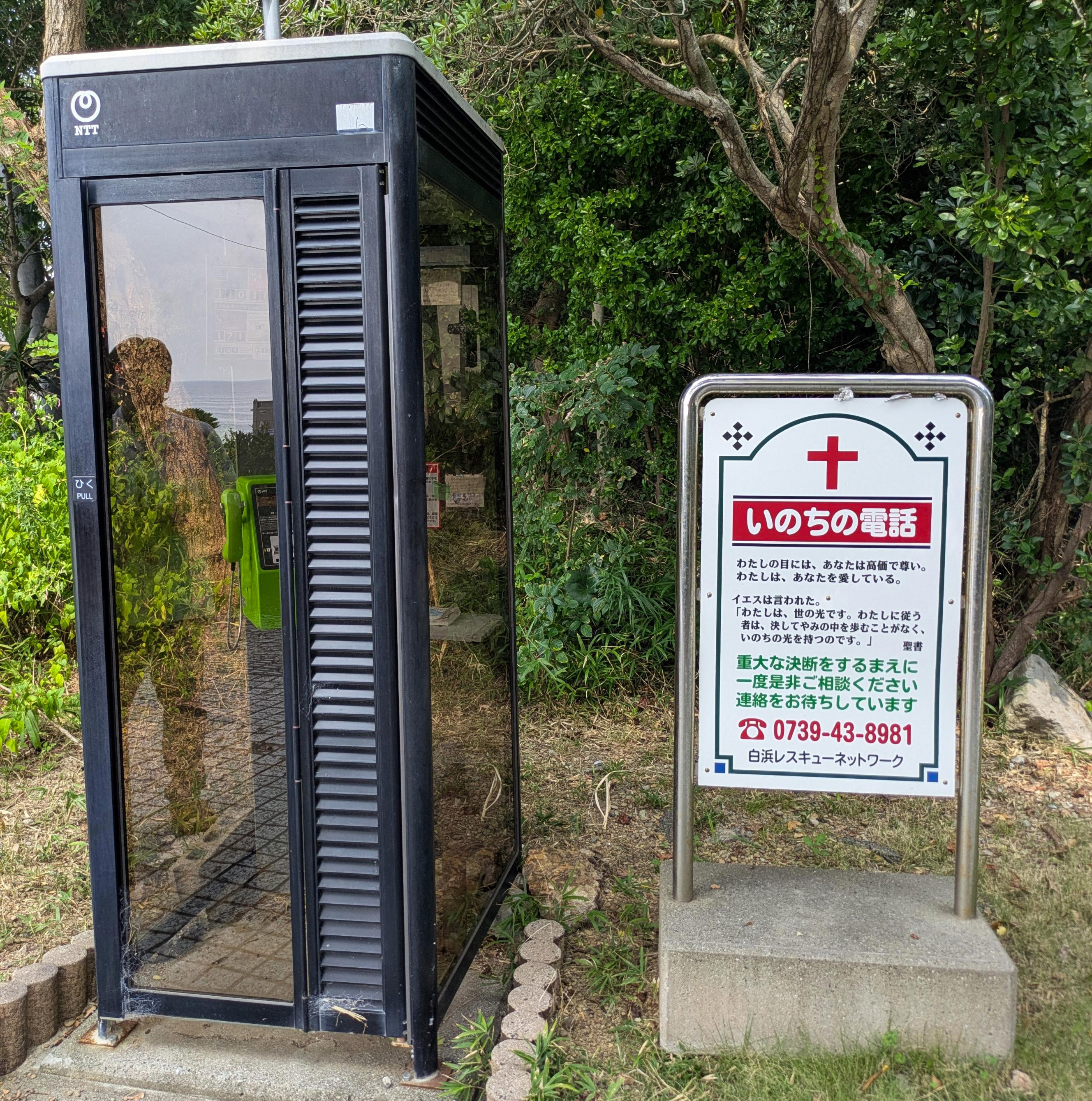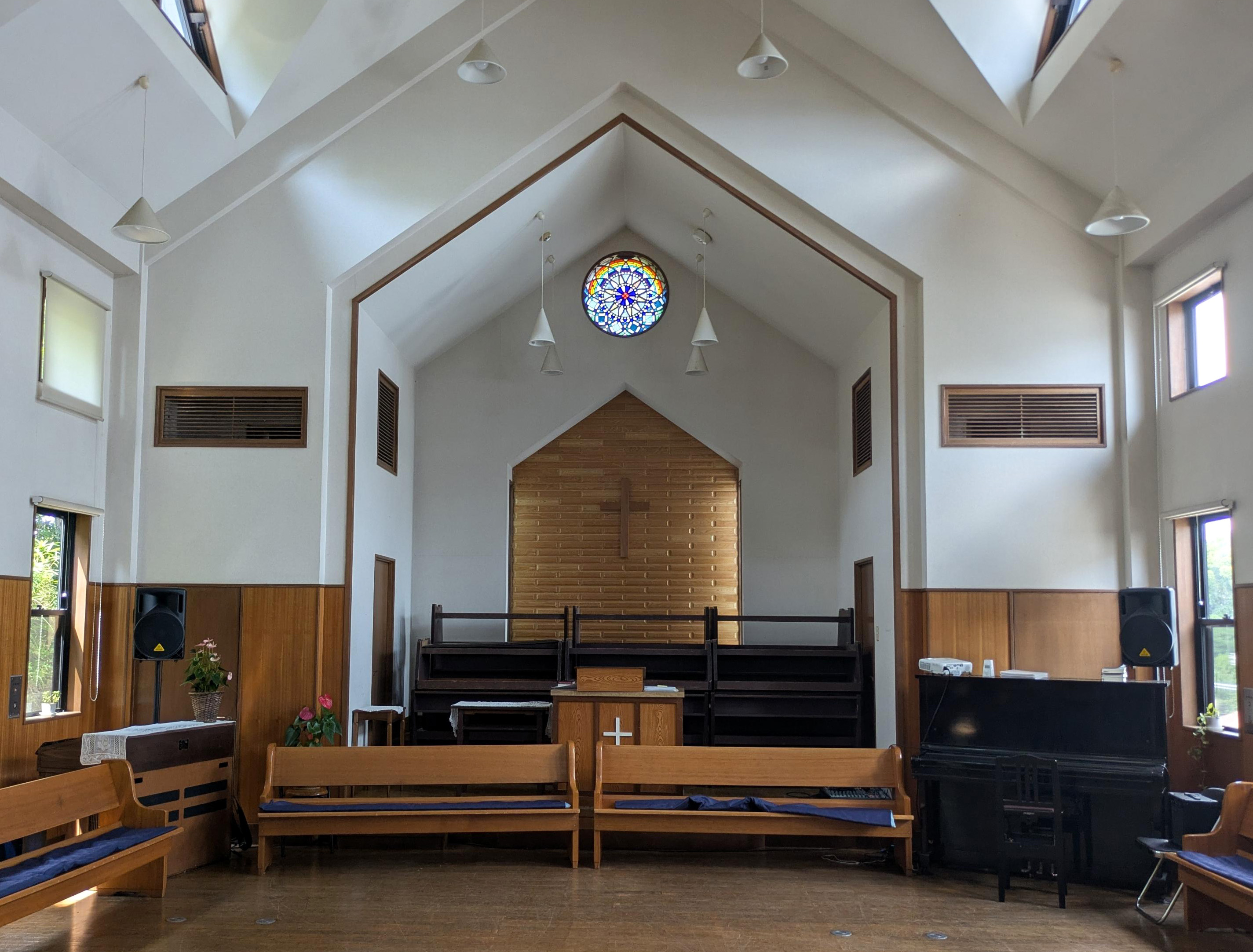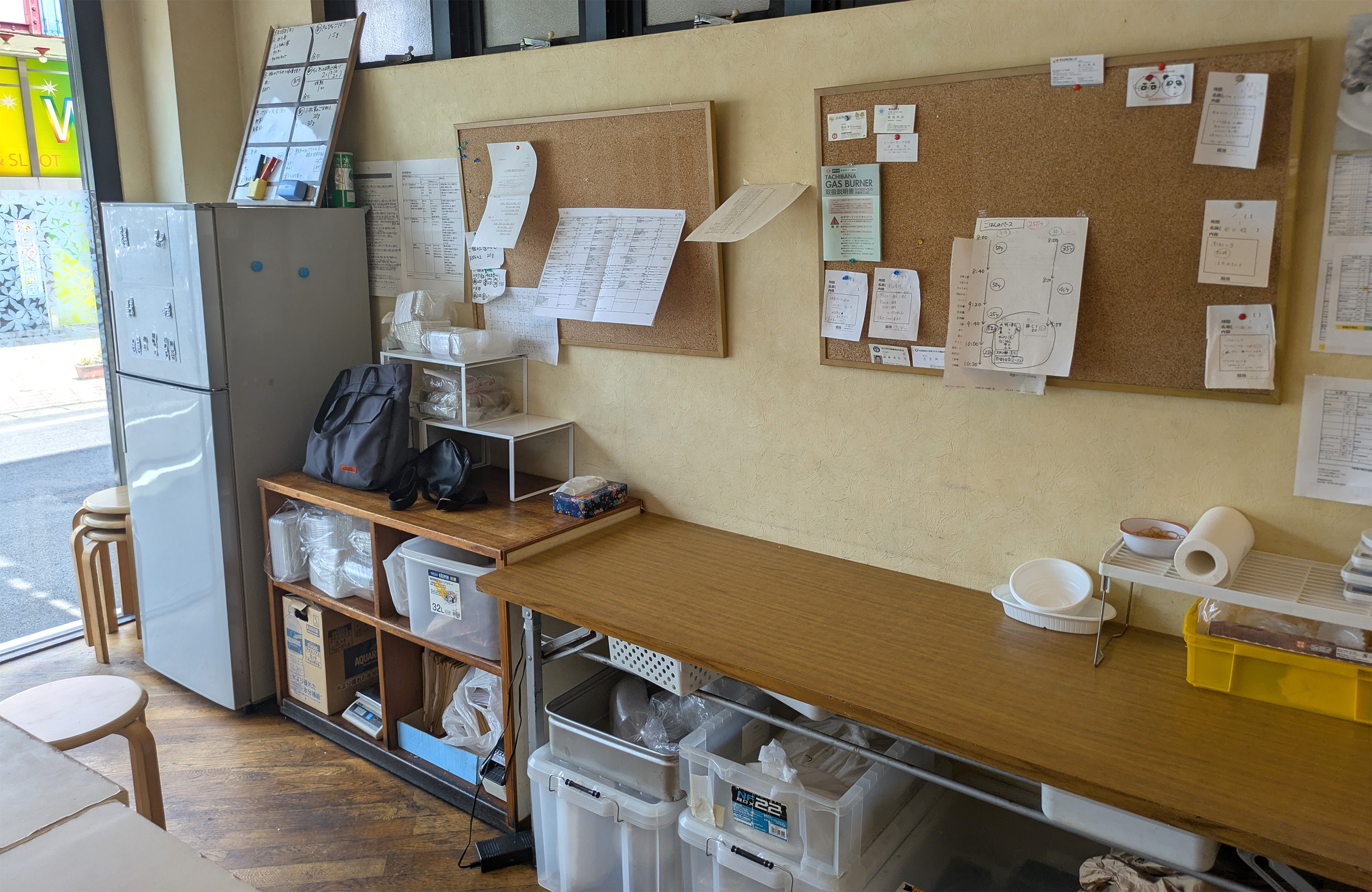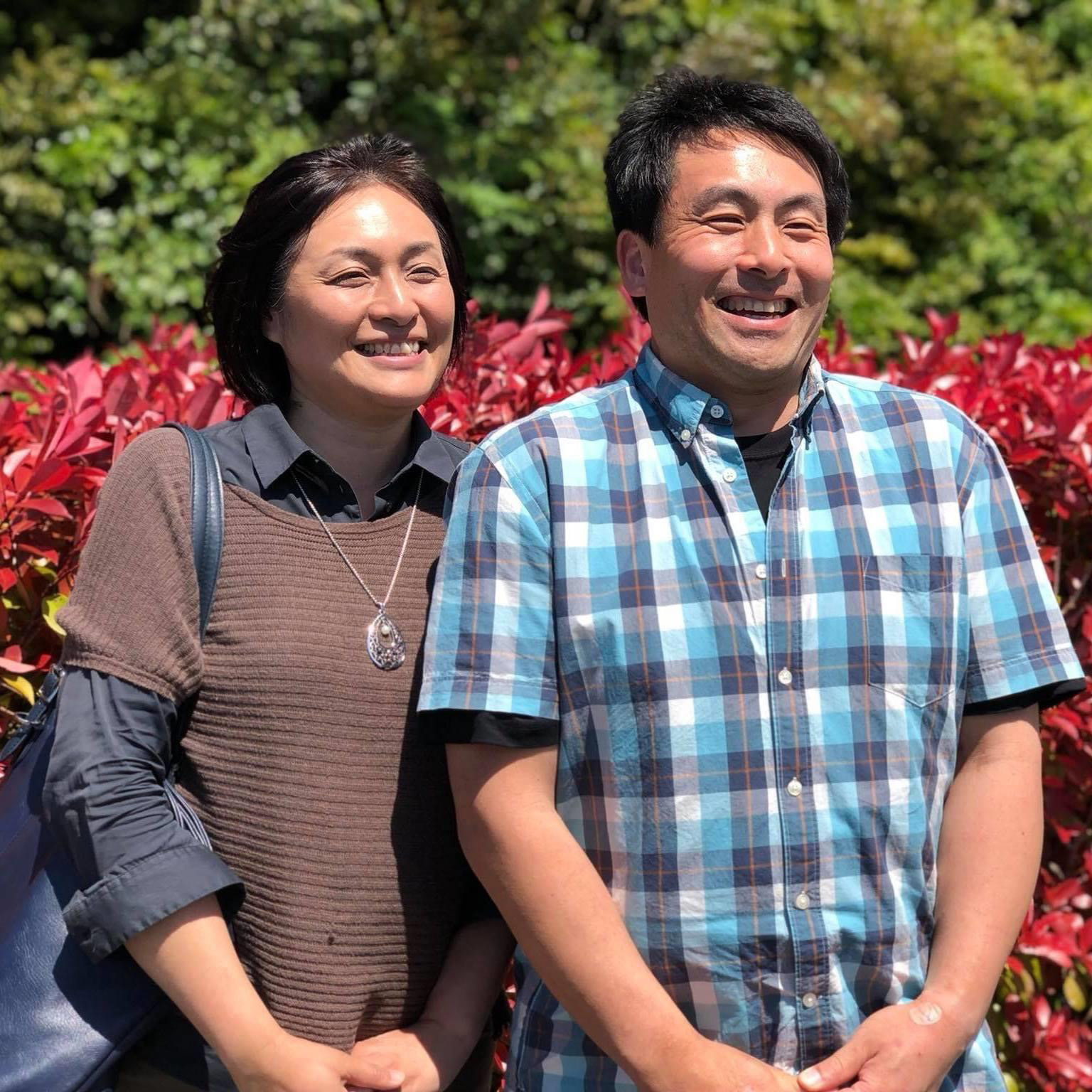Most people visit Shirahama, a resort town along Japan’s southern coast, for its sandy beaches and restorative onsens (hot springs). But some travel there because they want to die.
At a church close to Shirahama Beach, the piercing ring of a phone slices through the stillness of the night. “Moshi moshi?” Yoichi Fujiyabu answers. On the other end, a trembling voice whispers in Japanese: “Please … help.” Fujiyabu grabs his keys, jumps into his car, and speeds into the night. His destination: Sandanbeki, a majestic cliff overlooking Shirahama’s shores. It’s also one of Japan’s most infamous suicide spots.
The headlights cut through the suffocating darkness. There, a lone figure emerges in the beam. Fujiyabu steps out of the car. The ground crunches beneath his feet as he walks toward a shadow before him.
This scene is from the 2019 documentary The Pastor and the Cliff of Life and is one that Fujiyabu, the pastor of Shirahama Baptist Christ Church, reenacts over and over again, often in the wee hours of the night.
For nearly three decades, Fujiyabu has stood on the frontlines of suicide prevention in Shirahama. To date, he has stopped more than 1,100 people—he records the details of every person he has rescued—from taking their lives at Sandanbeki.
Sandanbeki is a five-minute drive from the center of town. Because the cliff is nearly 200 feet high and the ocean below it has a strong current, it is a popular destination for people wanting to die by suicide, as bodies are often swept away without a trace.
“It’s such a beautiful place, which makes the contrast even more striking,” Fujiyabu said as he guided me toward the windswept cliff on a hot day in late August. A breeze whipped in from the sea as sunlight danced upon the waves. Everything looked like a picture-perfect postcard until my eyes landed on a solitary stone monument, erected in memory of those who died by suicide at Sandanbeki.
As I walked toward the cliff with Fujiyabu, we came across a public phone booth. Most of these booths have vanished across Japan, but the town has kept this one operational so desperate people can call the Shirahama Rescue Network (SRN), a nonprofit run by Fujiyabu and his church.
Outside the booth, a large sign bears the words Telephone of Life along with a paraphrase of Isaiah 43:4: “You are precious and honored in my sight. I love you.” Under it, bold letters plead, “Please call us before you make [this] important decision.” The SRN hotline is the only number listed on the sign. Fujiyabu and his team have placed five of these signs in the vicinity, in hopes that people will reach out before deciding to end their lives. Inside the booth, a cross adorned with flowers hangs above a worn paperback Japanese Bible and a bright green telephone.
As we drew closer to the cliff’s edge, Fujiyabu pointed to several sites where people had jumped and others where he had pulled them back from the brink. Whenever he gets a call—about three to five times every month—and arrives at the cliff, his first task is to locate the caller. Once he does that, he tries to guide the person into the backseat of his car, away from the cliff’s edge, and listens to his or her story.
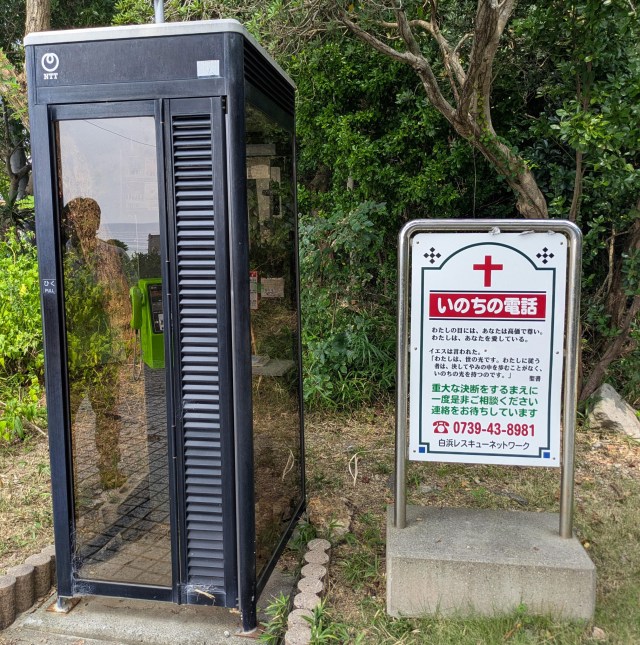
These encounters are rarely straightforward. Some reject his presence outright or are hostile toward him once they are inside his car, often because they waver in deciding whether to take their own lives.
In such moments, Fujiyabu often drives slowly through the town, circling its streets until the person calms down and feels safe. Only then does he bring people to his house or to a dormitory run by SRN, as they have nowhere else to go after cutting ties with family members, leaving their jobs, and selling all their possessions.
Dressed in a Hawaiian shirt and jeans, 53-year-old Fujiyabu cuts an athletic figure. His easy smile gives him an almost-boyish look. Yet behind his childlike grin lies a quiet determination and an unmistakable strength of will.
Fujiyabu first stepped into the Shirahama Baptist Christ Church as a young boy because a girl had invited him to attend a service. “It was an impure motive, just like most kids,” he recalled. As he continued attending church, he slowly began to understand the love of God. By the time he was 10 or 11, he became conscious of his faith in Christ.
He also developed a deep interest in relief work after reading the children’s novel Harp of Burma, which chronicles the story of a Japanese soldier who decides to stay and devote his life to tending the dead in Burma (Myanmar).
In elementary school, he tried to raise money for refugees living in Ethiopia and Cambodia. After months of effort, he managed to collect only 1,000 yen (around $7 USD), leaving him feeling powerless. Then, at a church summer camp when Fujiyabu was in sixth grade, his pastor preached on Acts 3. In the passage, Peter tells a beggar, “Silver or gold I do not have, but what I do have I give you” (v. 6).
“That struck me,” Fujiyabu said. “I realized that even if I didn’t have much to give, I could share the gospel.”
This moment planted the seed of Fujiyabu’s calling: to bring Christ’s message of hope to those in dire need. In many ways, this calling was also a natural outcome of his time in the Shirahama church community. He had grown up witnessing his predecessor, Taro Emi, build a suicide-prevention ministry at church. Emi started rescue operations at Sandanbeki in 1979, decades before Fujiyabu took on the role of pastor.
Fujiyabu recalled encountering people whom Emi had taken under his care. Once, he saw an unfamiliar woman weeping in church. Another time, Emi suddenly appeared with a small child who stayed with him for several months.
“I became a Christian because I saw the consistency between the gospel message preached at church and the way pastor Emi lived out his faith,” Fujiyabu said. “I thought, God’s love is real, and it is here.”

As he studied pastoral ministry at Tokyo Christian University—Japan’s only evangelical higher education institution—Fujiyabu never intended to return to his hometown congregation. That changed when Emi asked him to return to pastor the Shirahama church. He offered a salary of 50,000 yen ($330 USD) each month, an amount way below the poverty line in Japan.
Fujiyabu thought Emi was testing him to see if he was up for the task. “But when I started working, I realized [Emi] was serious,” Fujiyabu said. “That really was our monthly salary. That really taught us to trust in the Lord’s provision.”
Fujiyabu began as Shirahama Baptist Christ Church’s associate pastor in 1996 and took on the senior pastor role three years later. At the time, the church was barely hanging on, as it only had roughly ten weekly worshipers.
Today, the church has more than 50 regular members, including people who have moved to Shirahama from around the world for work. Around 20 of them are people whom SRN has rescued from Sandanbeki.
At first, the church faced numerous conflicts between its old-timers and people rescued from the cliff, who tended to struggle with gambling or porn addictions, alcoholism, or mental health challenges. Items in the church would break or go missing. Some believers began saying they did not want to worship with these newcomers. Yet Fujiyabu repeatedly told them the church is a place for imperfect sinners and they needed to help each other in their weaknesses.
“I want my church to be like a zoo,” he said, adding that the kingdom of God isn’t tidy or polished.
Fujiyabu’s pastoral work extends far beyond Sunday services and dramatic late-night rescues at Sandanbeki. Early in his ministry, he realized that rescuing people from the cliff and providing temporary shelter was not enough, and he wanted to offer more concrete ways to cultivate individual and communal healing.
Besides running the dormitory, SRN also operates an array of businesses in town. There’s a takeout restaurant called Machinaka Kitchen, a company retreat center, a cleaning service, a farm, and more. These workplaces provide training and equipping for people rescued from Sandanbeki and generate financial income for the ministry.
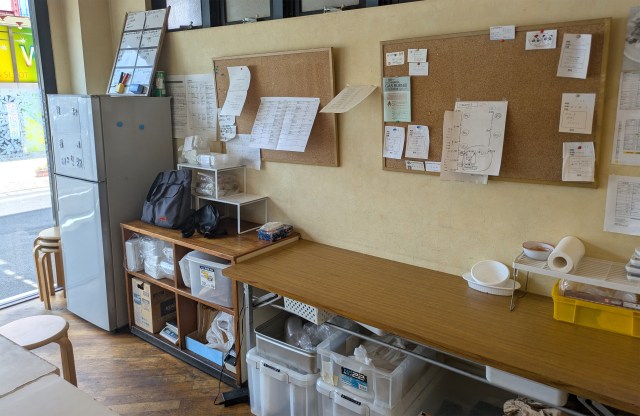
Fujiyabu also wants to help young people avoid seeing suicide as an option to take when they face challenges in life. The church offers an afterschool educational program and a distance-learning high school for those who drop out. Two years ago, they launched Noko Noko, a government-backed parenting center on the second floor of Machinaka Kitchen, to offer counseling for families in crisis.
Most of the infrastructure SRN and the church utilize comes at little cost. Fellow Christians and the local government rallied to support Fujiyabu’s ministry by donating building space or offering heavily subsidized rents.
Among SRN’s mostly Christian staff is Ching Khan Nem, a believer from Manipur, India. Nem first came to Japan to study English at Tokyo Christian University. In 2019, she visited the Shirahama church as part of a mission trip and had lunch with various people living at SRN’s dormitory. The atmosphere there felt very tense, and many of the people she dined with seemed “lifeless,” Nem said. “I felt deeply convicted that I wanted to serve here [and] bring joy and warmth into the lives of people in despair,” she added.
A year later, Fujiyabu invited Nem to work at SRN. Today, Nem is involved in multiple projects, including the distance-learning high school, an English-language program she helped start, the church’s summer camp, and Machinaka Kitchen.
“Fujiyabu pours his life into ministry and is willing to tirelessly work every single day for it,” Nem said of her experience working with the pastor. “People also criticize him for overwork, but that is just who he is.”
Fujiyabu isn’t fazed by others’ remarks about his ministry and work ethic. “People think I’m reckless because I just do what I believe is right, whether it seems plausible or not,” he said. “I’ve simply continued to do what God called me to do—listening to the needs of the town and its people.”
Japan’s suicide rate is the highest among seven developed countries, according to a 2018 World Health Organization report. While overall suicides in the country have declined for several years, numbers remain high, with more than 20,000 deaths annually. Youth suicide rates are especially notable: Last year, suicides by children and teenagers reached an all-time high with 527 recorded deaths.
Long working hours, social isolation, pressures in school, and stigmas surrounding mental health challenges are some of the oft-cited reasons for the East Asian country’s high suicide rate. Shame is another contributing factor, as Japanese culture implies that people should avoid becoming a meiwaku, or a burden to others. Family members often treat a person’s struggles, like job loss or crippling debt, as deeply shameful. Such stigma can drive some people to want to vanish from society altogether.
Evangelical churches in Japan have taken little substantive action in addressing the issue of suicide. Many hold the view that engagement in social work is characteristic of liberal Christianity, a criticism that Fujiyabu himself has faced from fellow believers and missionaries. In his view, though, the most pressing need for the gospel in Shirahama is how it can address the problem of suicide.
Most people in Japan rarely turn to the church when they need help, Fujiyabu lamented as we wound through Shirahama’s streets. “The church is irrelevant,” he said. “I wanted to change that. I wanted the church to be a place that mattered to the town.”
At Shirahama town hall, Fujiyabu introduced me to Itsuka Kiyomiya, the only social worker who oversees psychiatric health in its 21,000-strong population. “We consider SRN a vital social asset,” she said. “Even when the police find someone near the cliff, all they can do is provide money or temporary shelter. That’s why SRN’s work is invaluable.”
The partnership between town hall and SRN runs both ways. The authorities call the nonprofit when someone needs a place to stay long-term. In turn, SRN relies on Kiyomiya to connect people with the help or services they need, like unemployment benefits.
Yet the church and the town have differing perspectives on what restoration and healing look like. Many people eventually leave the church after they feel better, which Kiyomiya calls “true independence,” as people “no longer need to depend on the church.”
Fujiyabu smiled but disagreed: “I’m not too happy about that. I want them to remain, to be part of the church even after they’ve recovered.”
Fujiyabu recalled a recent example of what growth and healing in a Christian context look like. About three years ago, a man in his 40s was at a bar drinking and pouring out his troubles to the bartender when the latter responded, “You should try the church. There will be people there who will help you.”
The man, who had no prior Christian connections, went to Fujiyabu’s church, where the community welcomed him and persistently walked with him through his struggles. He started reading the Bible every day and became immersed in church fellowship. Today, he is one of the church’s newest baptized members.
Not every Sandanbeki rescue has had a positive outcome, however.
In 2000, Fujiyabu took in a frail young man who seemed determined to rebuild his life. Despite Fujiyabu’s caution against moving too quickly, the man insisted on finding work and soon secured a job. At first, Fujiyabu was hopeful, as the young man seemed to be managing well. But within weeks, the man started experiencing conflicts in his workplace and told Fujiyabu he wanted to quit his job. Fujiyabu urged him to persevere.
“That was when our relationship broke,” Fujiyabu said. “He felt I wasn’t understanding him.” The young man eventually resigned from his job and told the pastor he was returning to live with his parents.
Two months later, the police called Fujiyabu. They had discovered a man’s body with the church’s business card in his pant pocket. The young man had not gone back to his family but instead had ended his life.
The news devastated Fujiyabu. “It was my mistake,” he said quietly. He felt he had broken the young man’s trust by being too harsh toward him. For months, Fujiyabu questioned whether he could continue in ministry. “I realized that no matter how much time and effort you give, a person can still choose to end their life,” he said. “You cannot make that ultimate decision for them.”
It was Fujiyabu’s wife, Ayumi, who helped him carry on. The couple met at university, and Ayumi currently helps to run SRN’s afterschool education program and Machinaka Kitchen.
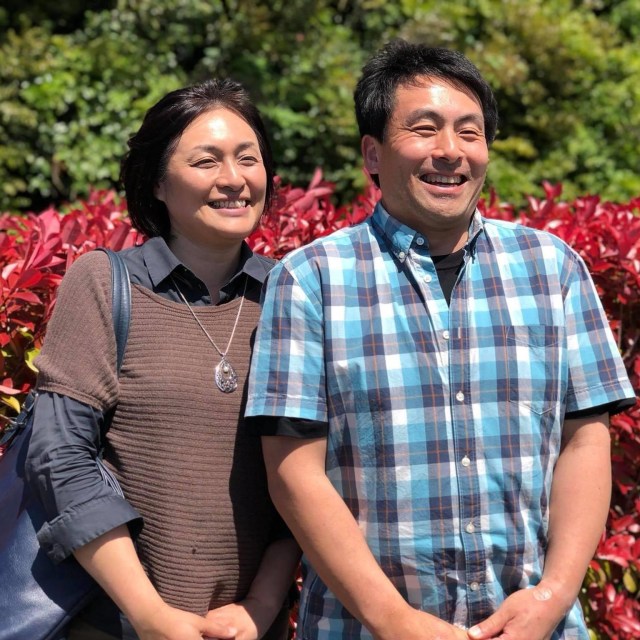
In their early years of ministry, late-night calls from Sandanbeki would often interrupt family dinners. The Fujiyabus’ two children had to stay silent until the calls ended, and Ayumi eventually had to ask Fujiyabu to bring the phone into another room.
The family also had to learn how to live with strangers. Before SRN established the dormitory, everyone lived together at the church. The Fujiyabus would share meals with the people rescued from Sandanbeki, who would later sleep in the church hall or other rooms in the building.
Integrating family and ministry life is important to Ayumi. “I believe God created each individual, and within his plan he has sent them to our church,” she said. “That perspective makes all the difference.” As Fujiyabu wrestled with what next steps to take after learning of the young man’s suicide, Ayumi told him, “I have made up my mind. I will dedicate myself to this ministry.” Her determination became his turning point.
The people whom SRN rescues from the cliff currently live together in a church-owned dormitory a five-minute walk from the church. Although the number of guests fluctuates, around ten people live there for several months or years in some cases. They follow a fixed schedule that Fujiyabu hopes will train them to lead a disciplined lifestyle in preparation to reenter society.
Every day, residents start their day at 6 a.m. by praying in chapel, then spend the rest of the day cleaning, preparing food, and working in various SRN-owned services such as Machinaka Kitchen.
In the evening, each person writes a self-reflection in a notebook, which Fujiyabu reads and comments on. In his conversations with the people he has rescued, he focuses on talking about God’s forgiveness, grace, and mercy. “The key to change is to understand that God loves them,” he said.
As my day with Fujiyabu drew to a close, I dined with seven people—one woman and six men—currently living at the dormitory. Shimohira, a soft-spoken man in his mid-30s, shared about his past candidly with me. CT agreed to use only his last name, as cultural stigma around suicide persists in Japan.
Shimohira had spent years running from his failures and weaknesses and felt caught up in a relentless cycle of negative thoughts that pointed to only one escape: death. After Fujiyabu and his team pulled him from the cliff’s edge at Sandanbeki, he struggled to adapt to the strict routine of dormitory life. He frequently clashed with his roommates and bristled at Fujiyabu’s criticism of his shortcomings.
Over time, something changed within him. “I began to face my weakness[es],” Shimohira told me. “I started bringing my pain not to myself, not to others, but to God.”
Church was foreign to him, so at first he sat disengaged through morning prayers and Sunday services. Gradually, the sermons and worship songs began to speak to him. Fujiyabu baptized him early this year, and he now sings in the church choir.
“I began to see that God loved me even though I am weak,” Shimohira said. “I don’t know whether it will be this church or another, but I want to spread the work that I am doing here right now.”
The future of Shirahama Baptist Christ Church and SRN, however, now feels uncertain. Five years ago, Fujiyabu was diagnosed with a rare form of abdominal cancer. The chemotherapy he received caused debilitating side effects like chronic kidney failure. Some days, the pain is so great that Fujiyabu is unable to rise from his bed. His illness has forced him to make difficult choices, such as canceling the kids’ summer program.
Fujiyabu refuses to give in to despair. He wants to continue responding to Jesus’ love and encouraging people to know and believe in Christ. “I am hopeful because ultimately it’s not about me or the organization,” he said. “It’s about God.”











